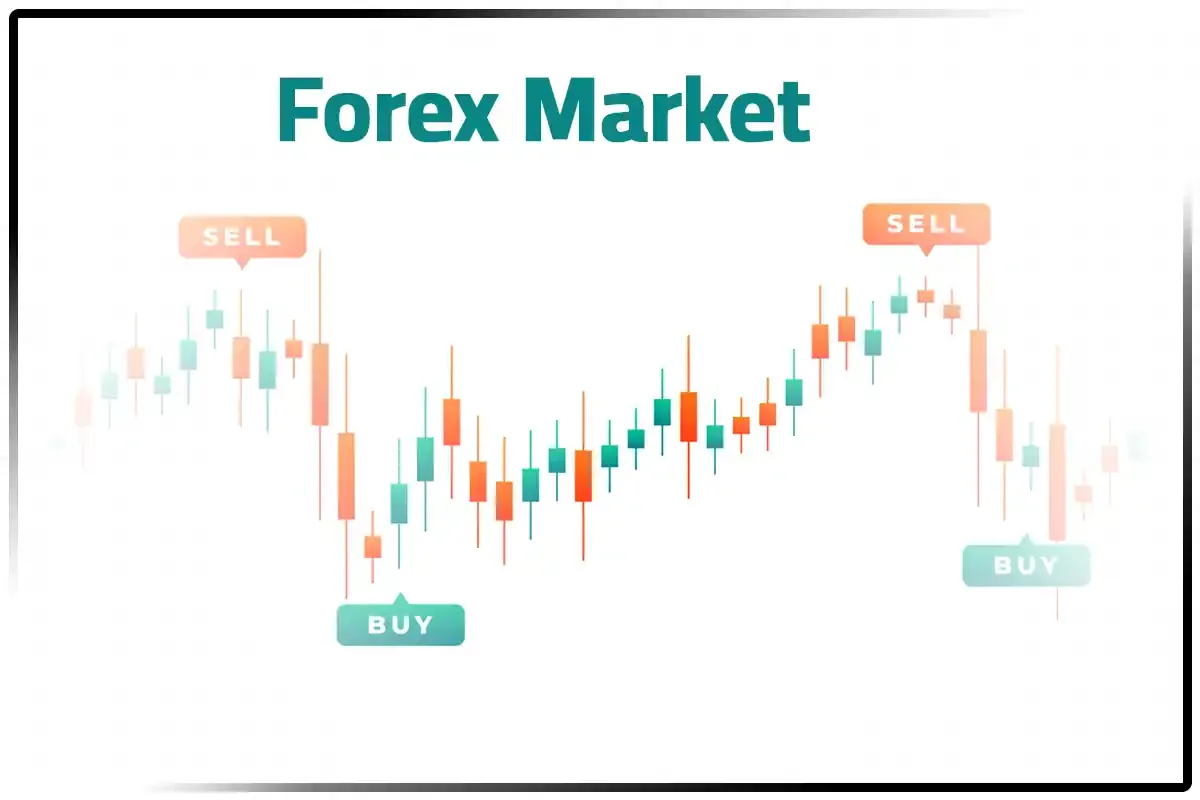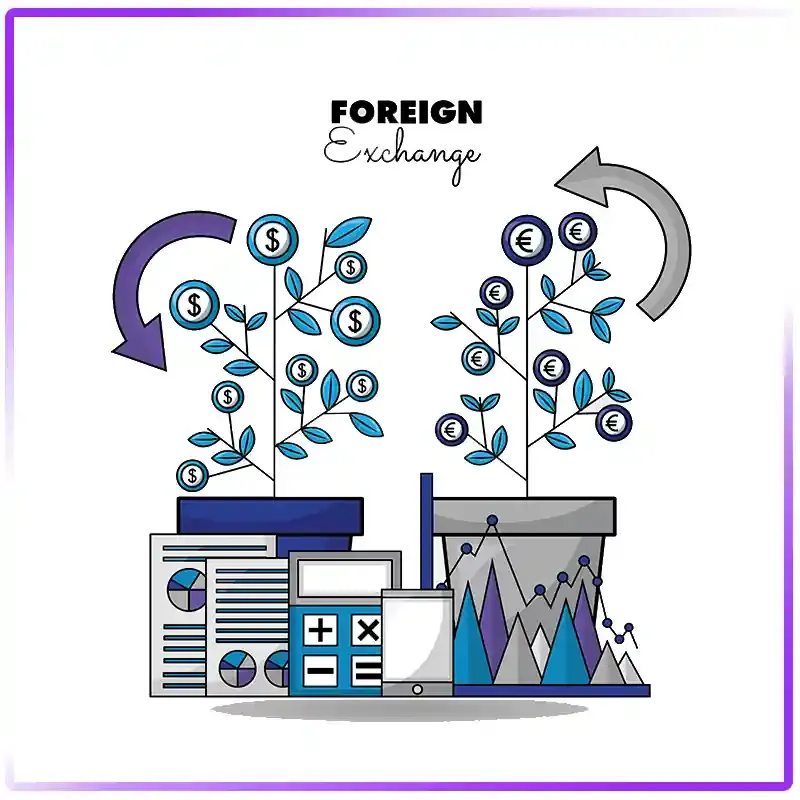Forex Market: A Comprehensive Guide to Forex Trading
What Forex Market Means?
The foreign exchange market, commonly known as the Forex market, is the largest and most liquid financial market in the world. It offers numerous opportunities for individuals to trade currencies and potentially profit from fluctuations in exchange rates.
In this article, we will delve into the intricacies of the Forex market, providing you with a comprehensive understanding of Forex trading, essential tools, strategies, and tips to enhance your trading skills.
What Is the Forex Market?
The Forex market encompasses the buying and selling of currencies, with the aim of making a profit from the changes in their exchange rates.
It operates on a decentralized global platform where participants engage in currency transactions, including:
- Financial institutions
- Corporations
- Governments
- Individual traders
Understanding the Forex Market
What is Forex Trading?
Forex trading involves speculating on the value of one currency against another, with the objective of profiting from the currency price movements. Traders can take advantage of both rising and falling markets by buying or selling currency pairs.
The foreign exchange market explained
The forex market is decentralized, which means there is no central exchange or physical location. Instead, it operates electronically, connecting participants from around the world.
The Forex market operates 24 hours a day, five days a week, allowing traders to access it at their convenience.
The Role of Currencies in Forex Trading
Currencies play a vital role in Forex trading as they are the medium of exchange between countries. Understanding the factors that influence currency value is crucial for successful trading, including:
- Economic indicators
- Geopolitical events
- Market sentiment
They all contribute to currency fluctuations.
Getting Started with Forex Trading
1. Choosing a reliable Forex broker
Selecting a reputable Forex broker is essential for a safe and secure trading experience. Consider factors such as regulation, trading platform features, customer support, and competitive spreads when choosing a broker.
2. Opening a Forex demo account
Before risking real money, it is advisable to practice Forex trading strategies on a Forex demo account.
Demo accounts simulate live trading conditions without the risk of financial loss, allowing traders to gain experience and test their skills.
3. Understanding Forex market hours
The Forex market operates 24 hours a day, but it is divided into different trading sessions, including the Asian, European, and American sessions.
Understanding Forex market hours helps traders identify optimal trading times and plan their strategies accordingly.
Essential Tools for Forex Trading
1. Forex charts and their importance
Forex charts are visual representations of the price fluctuations of currencies over time. They assist traders in analyzing trends, identifying patterns, and making informed trading decisions.
Popular chart types include line charts, bar charts, and candlestick charts.
2. Forex analysis techniques
Forex analysis involves evaluating various factors that can influence currency prices. Fundamental analysis and technical analysis are the two main forms of analysis:
- Fundamental Forex analysis focuses on economic, political, and social factors.
- Technical Forex analysis examines historical price data and patterns.
3. Common Forex indicators
Forex indicators are mathematical calculations that traders use to analyze price data and identify potential trading opportunities.
Moving averages, oscillators, and trend lines are examples of common indicators. Traders often combine multiple indicators to form a comprehensive trading strategy.
4. Forex trading platforms
Forex trading platforms are software tools that allow traders to access and execute trades on the Forex market.
They provide real-time price quotes, charting tools, order management capabilities, and other features essential for successful trading. Popular platforms include MetaTrader and cTrader.
Developing Forex Trading Strategies
The importance of Forex strategies
Having a well-defined Forex trading strategy is crucial for consistent success. A trading strategy outlines rules and criteria for entering and exiting trades based on various factors such as technical indicators, market conditions, and risk tolerance.
Fundamental analysis in Forex trading
Fundamental analysis is the process of determining the fundamental worth of currencies by analyzing economic data, central bank policies, and geopolitical events.
Traders who employ fundamental analysis aim to identify long-term trends and potential trading opportunities based on economic fundamentals.
Technical analysis in Forex trading
Technical analysis analyzes price data and trends from the past to forecast future price movements. Traders who use technical analysis rely on chart patterns, indicators, and other tools to identify entry and exit points, as well as potential support and resistance levels.
Risk management in Forex trading
Effective Forex risk management is vital to protect trading capital and minimize potential losses.
Traders should determine their risk tolerance, set stop-loss orders, and use proper position-sizing techniques to ensure their risk exposure remains within acceptable limits.
Enhancing Your Forex Trading Skills
1. Staying updated with Forex news
Keeping abreast of economic Forex news releases, central bank announcements, and geopolitical developments is essential for Forex traders.
News events can significantly impact currency prices, and being aware of these events helps traders make informed trading decisions.
2. Forex education and resources
Continuous learning is essential for improving Forex trading skills. Numerous Forex educational resources, including online Forex trading courses, webinars, and trading forums, provide valuable insights into Forex trading techniques, strategies, and market analysis.
3. Forex trading psychology
Emotional control and discipline are crucial in Forex trading. Traders must:
- manage their emotions,
- avoid impulsive decisions, and
- stick to their trading plans.
Developing a positive trading mindset and adopting sound psychological practices can greatly contribute to trading success. That's what we mean by "Forex trading psychology"
4. Utilizing Forex trading software
Forex exchange market software automates certain aspects of trading and can assist traders in analyzing data, generating trading signals, and managing trades.
Expert advisors (EAs) and trading robots are examples of Forex trading software that can be used to automate trading processes.
Exploring Advanced Forex Concepts
1. Forex scalping techniques
Forex scalping technique involves making multiple trades with small profits over short timeframes. Scalpers aim to capitalize on minor price fluctuations and often use high leverage and tight stop-loss orders.
Successful scalping requires quick decision-making skills and the ability to react swiftly to market conditions.
2. Understanding Forex pairs
Forex trading involves trading currency pairs, also called Forex pairs, with one currency being bought and the other being sold.
Major currency pairs, such as EUR/USD and GBP/USD, offer high liquidity and tight spreads. Understanding the characteristics and correlations of different currency pairs is essential for effective trading.
3. Forex investment opportunities
Forex trading offers various investment opportunities beyond individual currency pairs. Traders can invest in Forex funds, managed accounts, and mirror trading platforms.
These options allow individuals to benefit from the expertise of professional traders or allocate funds to diversified portfolios.
4. Incorporating technical analysis
In Forex trading, technical analysis is quite important. Traders can utilize various Forex technical analysis tools, such as chart patterns, support and resistance levels, and Fibonacci retracements, to identify potential entry and exit points.
Conclusion
The Forex market provides an exciting opportunity for individuals to engage in currency trading and potentially generate profits.
The key factors in achieving success in Forex trading are:
- Understanding the fundamental concepts.
- Employing effective strategies.
- Utilizing essential tools.
- Continuously enhancing your skills.
By staying informed, managing risks, and maintaining discipline, you can navigate the Forex market with confidence and increase your chances of achieving your trading goals.
Frequently Asked Questions:
What is the best time to trade Forex?
The best time to trade Forex depends on the currency pairs and trading strategies you employ. Generally, the highest trading activity occurs during the overlap of the Asian, European, and American trading sessions.
How much money do I need to start Forex trading?
The amount of money needed to start Forex trading varies. Some brokers offer the option to open accounts with as little as $10, while others may require a higher minimum deposit. It's important to start with an amount you are comfortable risking.
Can I make a living from Forex trading?
While Forex trading can make a living, it demands a substantial level of talent, knowledge, discipline, and experience. Successful traders often combine Forex trading with other income sources and continually strive to improve their skills.
Are Forex signals reliable?
Forex trading signals can be a valuable tool for traders, providing insights into potential trading opportunities. However, it's essential to choose reliable signal providers and validate the signals with your own analysis before executing trades.
What is the role of leverage in Forex trading?
Leverage enables traders to handle greater holdings with less cash. While leverage might increase earnings, it also increases losses. It's important to understand and use leverage responsibly, considering your risk tolerance and employing proper risk management strategies.








